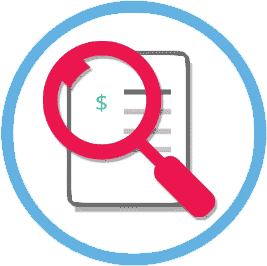CNA, Crum & Forster, County of San Diego: e-EORs Not Optional

As California continues its transition to fully paperless workers’ comp billing and payment, some claims administrators have apparently decided to follow their own regulations.
The state’s Division of Workers’ Compensation (DWC) requires claims administrators to return electronic Explanations of Review (EOR) when the provider submits electronic bills. With providers taking the lead on switching to more efficient, more sustainable electronic billing, claims administrators must do their part.
Unfortunately, Crum & Forster, CNA Insurance, and San Diego County are not living up to this obligation. After switches to new bill review services, each of these administrators began utilizing a new clearinghouse. Subsequent to the change in bill review, all three stopped returning the required electronic EORs.
Regulations without enforcement are no regulations at all. If claims administrators are this comfortable disregarding the DWC rules, providers can have no expectations of parity. As repeatedly shown, the lack of consequences for noncompliance is an invitation for malfeasance of all kinds, to the detriment of the entire workers’ comp system.
Electronic Billing Regulations
Since 2012, the DWC requires employers, insurers, and their workers’ comp claims administrators to accept electronic bills from providers that choose to bill electronically. Faster payment, an end to “lost” paper bills in the mail, and environmental responsibility made this decision a no-brainer.
Providers submit electronic bills known as 837 files, along with PDF supporting documents known as 275 files, to the claims administrator. Once this occurs, the claims administrator has two legally mandated obligations:
- Within 2 working days, the claims administrator must return an electronic acknowledgment of receipt of the bill and supporting documents, known as a 277 file.
- Within 15 working days, the claims administrator must remit an electronic EOR, known as an 835 file.
When the provider bills electronically, returning electronic EORs is not an option; it’s a requirement according to the DWC Medical Billing and Payment Guide, which states:
Except for bills that have been rejected at the Acknowledgment stage, the ASC X12N/005010X221A1 Health Care Claim Payment/Advice (835) must be transmitted to the provider...The 005010X221A1 serves as the Explanation of Review, and notice of denial or objection.
But since most claims administrators aren’t technologically equipped to handle these obligations, they generally turn to clearinghouses to maintain the necessary electronic connections and to prepare the appropriate electronic files.
Non-Compliant Claims Administrators
In the cases of Crum & Forster, CNA, and San Diego County, each previously returned compliant electronic EORs, in the form of the 835 files described above. But after these claims administrators changed to new bill review services, these entities immediately fell out of compliance with DWC rules:
1. County of San Diego
San Diego County switched bill review services from Genex to EK Health, effective January 1, 2018. The clearinghouse was then updated, from Jopari to WorkCompEDI. A WorkCompEDI representative reported that the “County of San Diego is not live with 835s with their current Bill Review,” and claimed they would investigate further.
2. CNA
CNA switched bill review services from Coventry to Conduent, effective March 4, 2019. The clearinghouse was then updated, from Jopari to WorkCompEDI.
3. Crum & Forster
C&F switched bill review services from CorVel to Conduent, effective April 24, 2019. The clearinghouse was then updated, from CorVel to WorkCompEDI.
Wherever the kink in the system is — with the claims administrator or the bill review service — it is the claims administrator’s legal duty to comply with electronic billing regulations. After taking the initiative and establishing electronic billing, providers should not be punished by the ineptitude or noncompliance of the payor.
DaisyBill is tailor-made to address work comp’s unique challenges using all the advantages of today’s tech. From authorization to billing to appeals for review, we’ve got providers covered. Schedule a free demonstration, and see what DaisyBill can do for your office.
MAKE BILLING EASIER
DaisyBill provides content as an insightful service to its readers and clients. It does not offer legal advice and cannot guarantee the accuracy or suitability of its content for a particular purpose.



